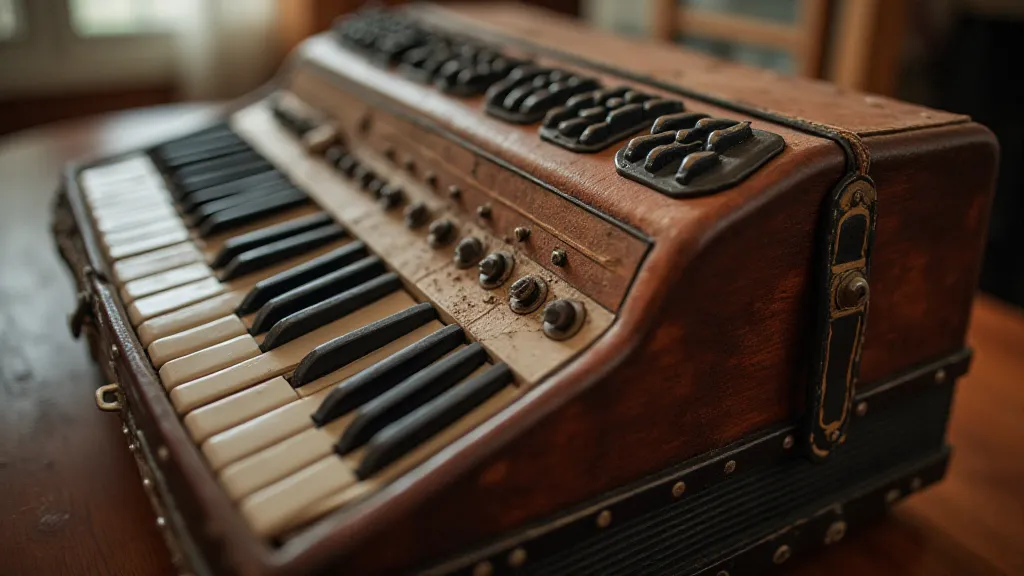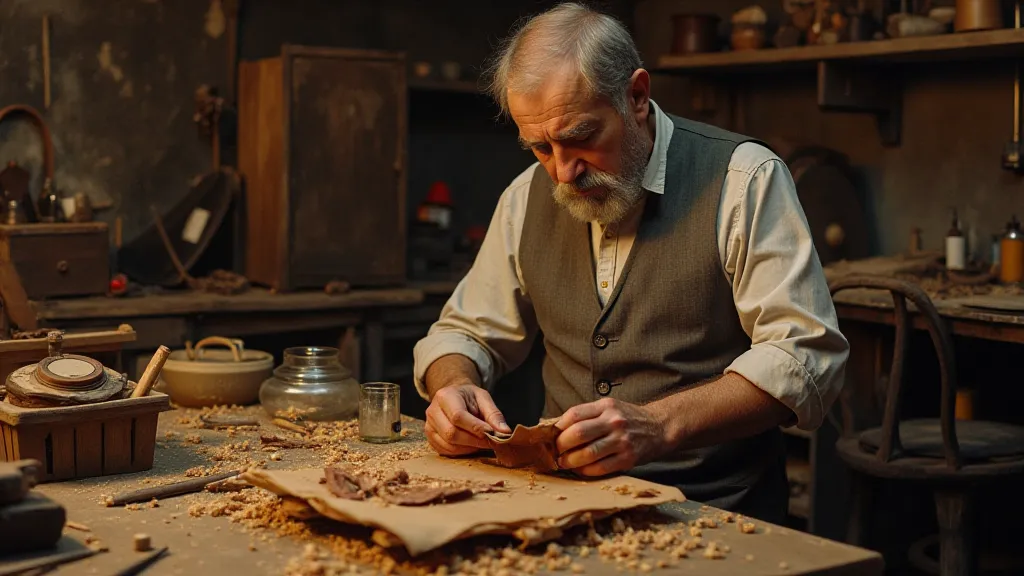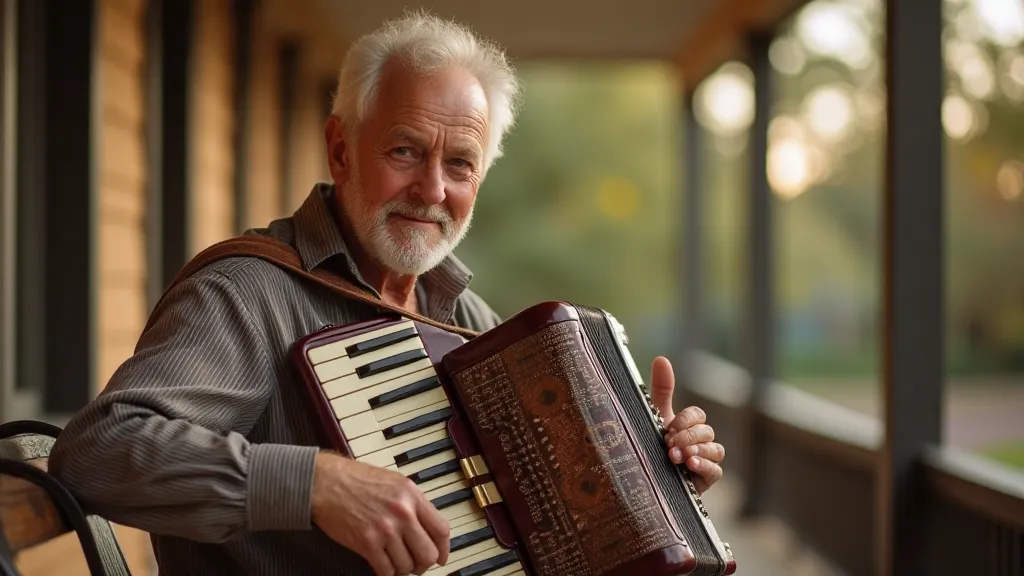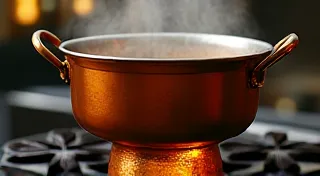Deconstructing the Bouillon: Finding Essence in the Reduced
There’s a peculiar beauty in loss. Not the grand tragedy of irreparable breakage, but the subtle, persistent evaporation of excess. Think of a perfectly ripe peach, its sweetness concentrated as it dries into a chewy, intensely flavored chip. Or consider the painstaking process of reducing a stock – a seemingly simple act that unveils a profound truth about refinement, intention, and the power of stripping away the unnecessary.
I’m reminded of this when I think about antique accordions. Not the modern, bright plastic behemoths you see onstage, but the older instruments, crafted with meticulous care from wood, leather, and bone. I inherited my grandfather’s Hohner Marine Band from 1938. It's a heavy thing, imbued with the ghosts of polka nights and rainy field dances. It’s a vessel holding a lifetime of music, but also a testament to a time when things were built to last, to be treasured, to be truly *felt*.

The Alchemy of Reduction
My grandfather, a taciturn man of few words, didn’t talk much about his accordion. But I’m certain it was more than just an instrument to him; it was a connection to his heritage, a comfort in hard times, a source of unexpected joy. Like a chef meticulously reducing a chicken stock, he seemingly distilled a simpler, deeper understanding of life through its music. The initial stock, raw and potentially overwhelming, is a collection of bones, vegetables, and water. It's brimming with potential, yet lacking focus. Through simmering, the impurities rise to the surface and are skimmed away, while the essential flavors – collagen breaking down into rich gelatin, the subtle sweetness of carrots – become concentrated.
The reduction isn't about discarding something valuable. It's about clarifying it. It's about removing the distractions to reveal the pure essence of the flavor. It's a philosophy that applies far beyond the kitchen. Think of a great novel – does it bury you in unnecessary detail, or does it hone in on the core human experience with ruthless efficiency? Think of a sculpture – does it strive for grandiose scale, or does it find power in the simplicity of form?
Craftsmanship: A Lost Art?
My grandfather’s accordion, like a properly reduced stock, speaks volumes with minimal effort. It’s not flashy. It's not about ostentatious display. It's about honest work, about careful selection of materials, about the dedication to a craft. The wood is aged, dark and resonant. The bellows, painstakingly stitched from leather, are surprisingly supple. Each button, each key, is perfectly weighted and responsive. You can *feel* the countless hours that went into its creation.
Modern manufacturing, with its emphasis on speed and efficiency, often sacrifices this kind of attention to detail. We live in a world of disposability, where things are designed to be replaced, not cherished. The slow, deliberate process of hand-craftsmanship – the kind exemplified by my grandfather’s accordion – feels almost anachronistic. It’s a reminder of a time when things were made with love, with pride, with a sense of responsibility to future generations.

The Collector's Eye & the Restorationist’s Touch
Collecting antique instruments, like meticulously reducing a stock, requires a certain level of patience and discernment. You're not just looking for an object; you’re searching for a story. You’re looking for evidence of a life lived, of a passion pursued, of a connection to the past. The minor imperfections – the scratches on the wood, the slight discoloration of the leather – are not flaws; they're marks of authenticity. They're testaments to the instrument’s history.
Restoration, too, follows the same principle. It’s not about recreating something new; it's about preserving what remains, about gently guiding the instrument back to a state of functionality and beauty. A skilled restorer understands that less is often more. They’re not trying to erase the signs of age; they’re trying to stabilize them, to protect them, to allow them to continue telling their story.
There's a similar ethic in cooking. A truly great chef understands that the best ingredients are often the simplest. They don't try to mask the natural flavors with unnecessary sauces or spices. They let the quality of the ingredients speak for themselves. The reduction isn’t about adding to the flavor, it's about revealing what’s already there.
Finding Resonance
The music my grandfather played on his accordion wasn't flashy or technically brilliant. But it was honest. It was heartfelt. It resonated with a quiet strength that transcended its simplicity. And it's a reminder that the most profound experiences often arise not from grand gestures, but from the quiet, deliberate pursuit of excellence in even the most seemingly ordinary things.

Deconstructing the bouillon, whether in the kitchen or in the workshop, isn’t simply a technique. It's a philosophy. It’s a recognition that true beauty and meaning often lie beneath the surface, waiting to be uncovered through patience, intention, and a willingness to strip away the unnecessary. And sometimes, the greatest rewards come not from building something new, but from appreciating the enduring legacy of what already exists.





